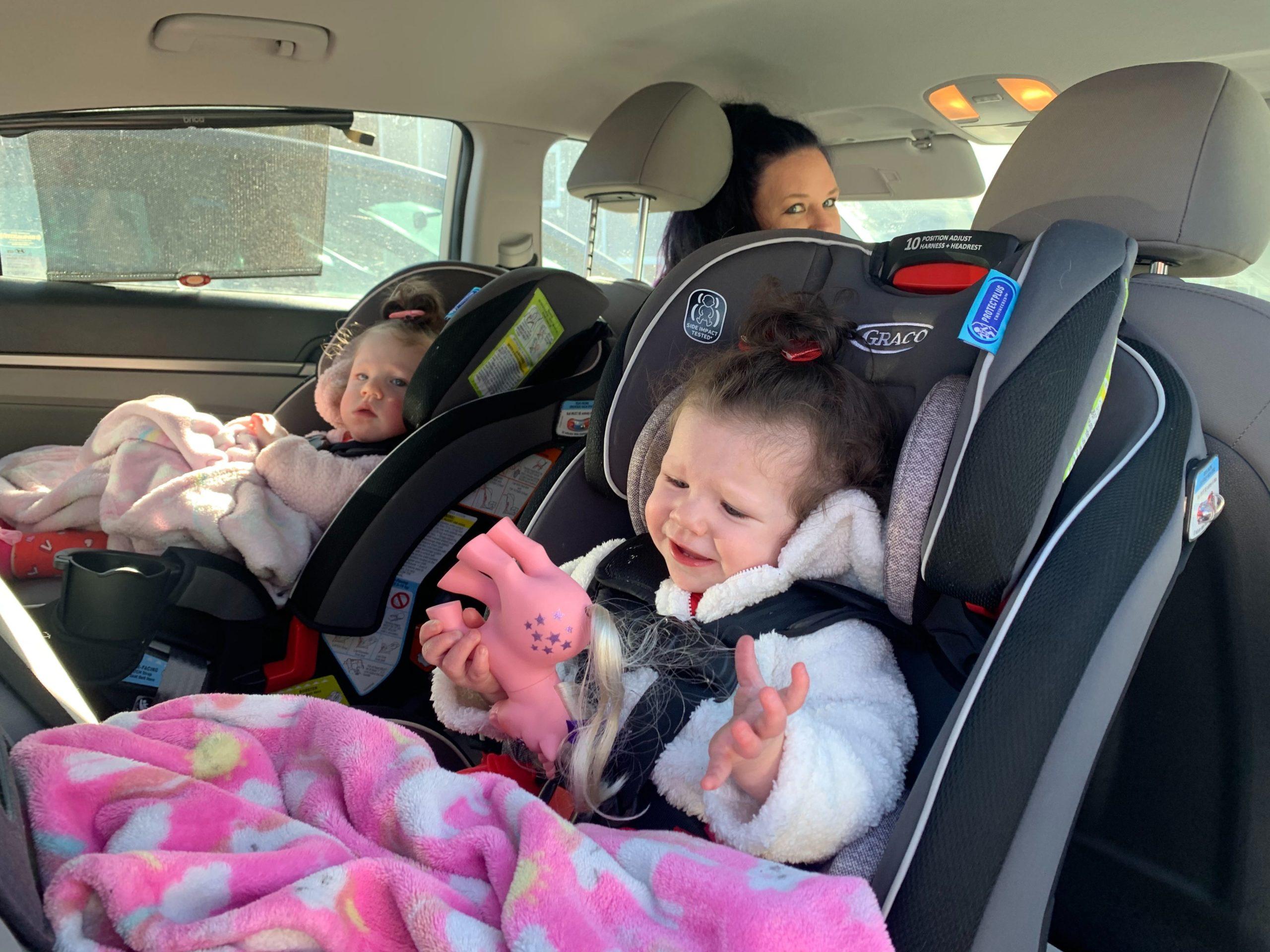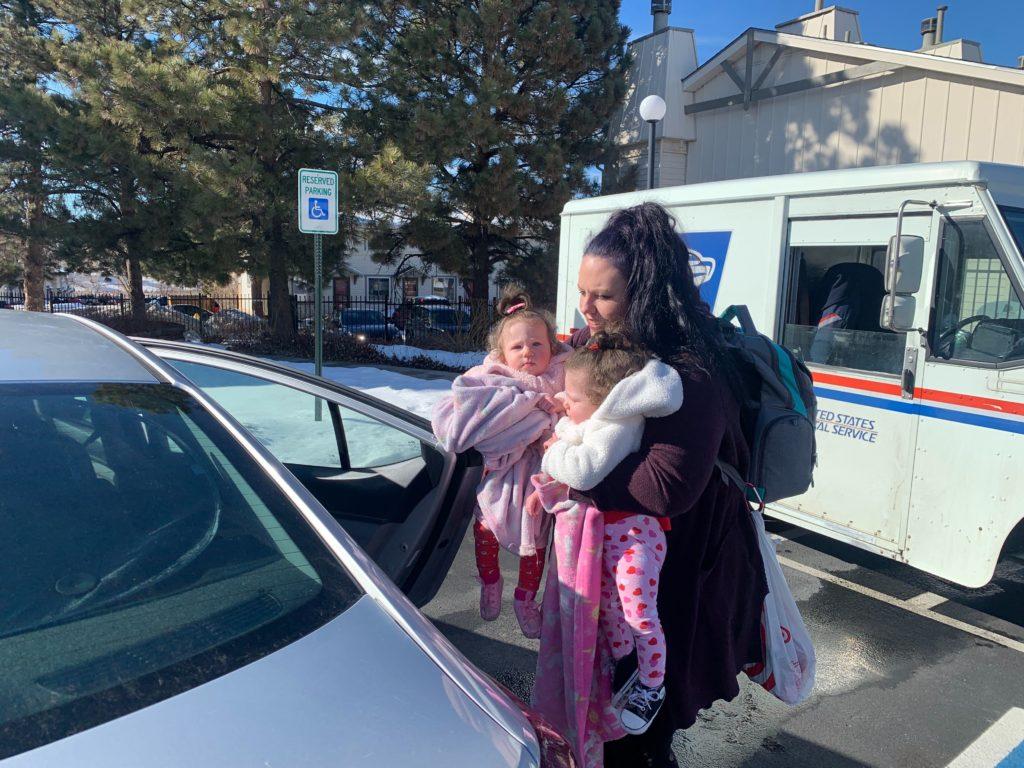
The last weeks of Jenna Riley’s pregnancy were painful — extremely painful.
She felt it every time she struggled up the stairs of her second-floor condo in Aurora and all through the hours she worked on her feet each day. She was carrying twins and suffering from preeclampsia, a potentially dangerous pregnancy condition.
But she didn’t want to give birth a day before it was necessary.
“As physically exhausted and miserable as I was, I needed the pregnancy to last longer,” explained Riley, a 38-year-old who manages programs for adults with disabilities.
She wasn’t just worried about complications from a preterm delivery, which is common for twins. She simply couldn’t afford it. Her job didn’t offer paid maternity leave and she needed to work as long as possible to build up a cushion for a few weeks off.
“I worked really hard to save money while I was pregnant, and I worked two jobs all through my pregnancy as well,” said Riley, who makes just less than $50,000 a year. Her boyfriend is a therapist for Medicaid clients. Together, they hoped to cover her missed paychecks for a month, giving her time to bond with the twins.
But things didn’t work out as the couple planned. The girls were born early, and the doctors said they’d need five weeks in the neonatal intensive care unit — longer than she could possibly afford not to work.
“Oh my God, what am I going to do?” the new mother thought. “I better start. I better work ... I'm physically capable of doing something, even from my hospital bed.”

Within days of the delivery, she handled part-time administrative tasks from her hospital room. And from there it only escalated. The girls were released early, but the bills were mounting, so Riley returned to regular work when they were just three weeks old and she brought them with her.
“Three-week-olds sleep most of the time, so I could hold them and type, and I could carry them around with me,” she said. “Which wasn't ideal, but again, my boss really understood my situation.”
It’s a dilemma faced by countless new parents: The U.S. is one of the only countries on Earth that doesn’t mandate any amount of paid leave for new parents or medical emergencies. Federal law guarantees workers at companies with more than 50 employees access to 12-weeks of unpaid leave, but only 15 percent of the workforce gets paid benefits.
That’s especially hard on lower-income workers who are more likely to live paycheck-to-paycheck, according to Maya Rossin-Slater, assistant professor of health research and policy at Stanford University School of Medicine.
“You kind of cobble together what you can,” she said. “But at the end of the day, it’s not going to be that much. Then you face the decision, are you going to return to work a couple [of] weeks after childbirth?”
Change happening state by state
The calls for reform have only grown louder in recent years. Eight states and Washington, D.C. now have paid leave laws, including several passed in just the last few years.
In Colorado, it’s a major priority for the Democrats who control state government, though the actual execution is still a topic of intense debate within the party.
“We are now in the sixth year of talking about paid family leave as a possibility for Colorado. Each year that it's been introduced, it's gone a little bit farther,” said Jennifer Greenfield, an associate professor at the University of Denver and an advocate for paid family leave.

On a recent weekday — Valentine’s Day, actually — Riley watched as her two young daughters crawled quietly around her condo in Aurora. She had to laugh at their matching pink-and-red tutus and curly brown hair.
“I didn't think I was going to be that mom that dresses their kids up in ridiculous little clothes,” she said. But she gave herself a pass on this day in particular. It was the first anniversary of the girls’ arrival home from the hospital. The last year had been “life-changing in really cool, awesome, stressful ways.”
Still, pain from her pregnancy lingered, and Riley wondered if she pushed herself too far.
“I really probably would be feeling a lot better today had I actually taken the time to heal because I didn't,” Riley said, her cheerfulness fading and her voice faltering.
“I was so focused on like having to work and like having to take care of everything. Just so I could, like, have a place for us,” she said. “I ripped a (surgical) stitch because I was doing too much. So I … I completely had to neglect myself.”
In fact, research shows that when families get the time for those initial weeks of bonding it can have lasting benefits for parent and child alike, according to Greenfield. The American College of Obstetricians and Gynecologists has recommended paid leave of at least six weeks for new parents, saying it improves health while boosting worker morale and decreasing turnover.
The proposal Colorado Democrats are working on this year would initially require many companies to offer 8 weeks of partially paid leave. In later years, the mandate would expand to include smaller employers and to allow a longer leave time. It also would create a regulated insurance market where businesses could buy policies to cover employees’ wages while they’re on leave.
But the bill faces criticism on multiple fronts, and the debate’s so intense that two of the proposal’s four sponsors have dropped their names from the effort.
For some, it doesn’t go far enough. For example, a draft version of the bill excludes seasonal workers. It also would initially exclude companies with fewer than 20 people. There are also broader questions about whether the state should instead create a publicly funded program, which was the model Democrats proposed earlier.
On the other side, business leaders are skeptical of the new requirement. Kelly Brough, president of the Denver Metro Chamber of Commerce, said that businesses want to provide paid leave, but they need the flexibility to do it on their own terms. A new requirement could be burdensome for small businesses and nonprofits, she and others have warned.
“Many of them are finding solutions with their employees that make it work, both financially for the employer and financially for the employee,” she said. A mandate, she said, “would remove their ability to have that conversation … and solve it together.”
For her part, Jenna Riley worries that the free-market approach would ignore lower-income workers like herself, who are statistically less likely to get a paid benefit. She said working with people with disabilities is a worthwhile and fulfilling job. She doesn’t believe workers like her should have to sacrifice those priorities in order to get benefits like paid leave.
“Our society currently just really feels that you have to be at a certain status to be able to have these types of things,” she said. “And pretty much all of us, we’re working hard. We're just trying to make a good life for ourselves.”
Democrats expected to formally introduce their bill this week. Now it’s unclear when — or whether — the final proposal could appear.









